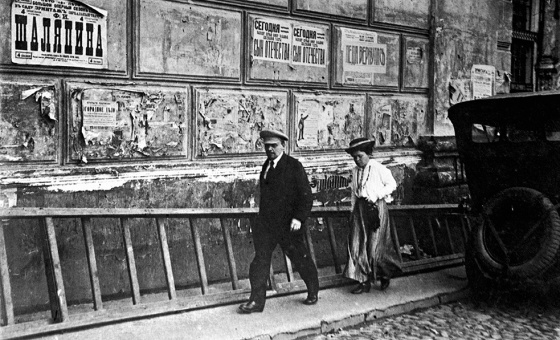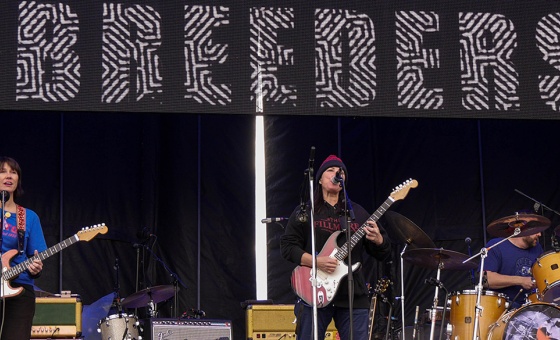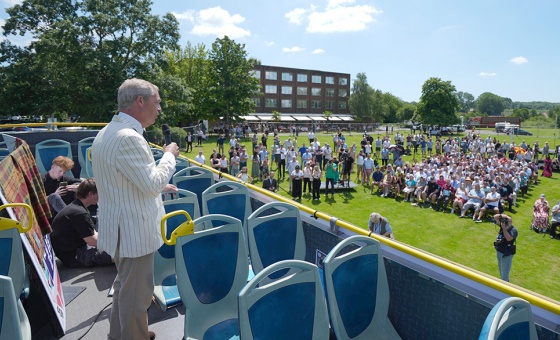This is the last article you can read this month
You can read more article this month
You can read more articles this month
Sorry your limit is up for this month
Reset on:
Please help support the Morning Star by subscribing here
DANGEROUS historical revisionism is on the rise. What’s at stake is the memory of the 20th century’s long war against fascism.
We’re talking about the “people’s war,” a phrase coined by Tom Wintringham, a former British Battalion commander during the Spanish civil war.
This was a war that saw ordinary people, whether in armies or as resistance fighters or partisans, fight back against Europe’s fascist dictators and ultimately defeat the Nazi war machine in 1945.
What we’re now witnessing are attempts to remove them from history. This is exemplified by the European Parliament’s now notorious 2019 resolution on “European remembrance,” which asserted that communism and fascism were equivalent ideologies.
Blame for the second world war was shared by the Soviet Union and Hitler’s Germany, the MEPs went on to claim.
Search the long-winded resolution’s 2,400 words and what you won’t find is any reference to the role played by Britain, then still a great power, in appeasing Europe’s fascist dictators. It’s as if the 1938 Munich Pact that abandoned Czechoslovakia to Nazi militarism never happened.
Nor did MEPs bother to mention the Spanish civil war, when the policy of appeasement manifested itself as tacit approval for the toppling of another democracy, in this case the Spanish Republic.
The consequences were dire. General Francisco Franco was able to declare victory. The Axis powers were further emboldened and the march towards a new world war became unstoppable.
Whether deliberately or out of ignorance, the vast majority of MEPs, including, shamefully, the pre-Brexit Labour group, blatantly disregarded these historical truths.
The need to challenge distortions and omissions of this sort helps explain why the International Brigade Memorial Trust (IBMT) is redoubling its efforts to make sure the Spanish civil war is taught in schools.
A range of new teaching aids and lesson plans have been produced over the past 18 months and are already on the IBMT’s website. They are still being added to. The aim is to help Key Stage 3 pupils (11 to 14-year-olds) study the real reasons for the conflagration that engulfed Europe and then the world from 1939 to 1945.
While learning about the rise of fascism at home and abroad, pupils are asked to explore why so many people from Britain — more than 2,000 in total — were willing to defy their own government and courted death fighting in a foreign war. More than 500 of them were killed.
The teaching modules have been put together with the help of history teachers and students from Leeds University and sympathetic educationalists. Individual IBMT members have donated towards the project and there has been funding from a progressive educational charity, the Lipman-Miliband Trust.
Also online are resources for students, trade unionists and people of all ages. They include a digital version of the IBMT’s Antifascistas exhibition and a broader history of the International Brigades and the war in Spain.
Judging by contemporary political events and the growing influence of neofascism across Europe, the IBMT’s educational initiative is badly needed.
We’ve recently had the grotesque spectacle of Boris Johnson brandishing a banner with Waffen-SS insignia in the Palace of Westminster as well as a standing ovation for an SS veteran in the Canadian parliament. In Italy and Spain, the political heirs of Mussolini and Franco are being elected to national and regional office.
Under the cover of the war in Ukraine, revanchist political movements have gone mainstream. In Eastern Europe Nazi collaborators of the 1940s have been rehabilitated. Memorials to the Red Army, the liberators of much of Europe from fascism, are being demolished.
We learnt early in June that only 6 per cent of British people now think the Soviet Union did the most to defeat Nazi Germany — even though Winston Churchill once said: “I have always believed and I still believe that it is the Red Army that has torn the guts out of the filthy Nazis.”
The memory of those who fought fascism in Spain is also being erased. The IBMT has had to protest to the authorities in Croatia and Poland over the removal of memorials to International Brigade volunteers.
We want school students to learn that, for the three years before Britain’s eventual declaration of war against Germany, the crucible of the global anti-fascist struggle was in Spain.
Not so long ago the IBMT had occasion to write to a major publisher of GCSE revision guides. One of its modern history books dismissed the war in Spain as a conflict between communists and right-wing rebels, while the League of Nations “looked on helplessly.”
In reality Britain, with France in tow, cynically promoted “non-intervention,” which meant denying the Spanish Republic the right to buy weapons to defend itself. Prime ministers Baldwin and Chamberlain knew it would lead to the Spanish Republic being crushed by Franco’s army along with 80,000 troops sent by Mussolini and Hitler’s 17,000-strong airborne Condor Legion, the butchers of Guernica.
Meanwhile tens of thousands of volunteers from around the world made their way to Spain to join the International Brigades. Most of them — MEPs please take note — were communists, yet loyal to the elected socialist-led government of Spain.
The British government knew exactly what it was doing. Sir Robert Vansittart, chief diplomatic adviser at the Foreign Office during the civil war, noted privately: “The whole course of our policy of non-intervention — which has effectively, as we all know, worked in an entirely one-sided manner — has been putting a premium on Franco’s victory.”
The outcome of the war was thus sealed. Franco, the jack-booted generalissimo who kept a portrait of Hitler on his desk, ruled Spain until his death in 1975 in an implacably brutal dictatorship — one that provided a template for the murderous strongmen of Latin America, from Stroessner and Banzer in Paraguay and Bolivia, to Pinochet and Videla in Chile and Argentina.
Their contribution to the anti-fascist struggle didn’t end when Franco marched into Madrid. Many continued the fight in the ensuing world war as part of what was, in the words of one historian, “an unbroken line of anti-fascist resistance.”
Historical revisionism towards the Spanish civil war is nothing new of course. During the cold war, when anti-communism became the official ideology, International Brigade volunteers were “premature anti-fascists” or “dupes of Stalin.”
US president Ronald Reagan, who had no qualms about paying his respects at a German cemetery with the graves of SS soldiers, said of the Lincoln Battalion volunteers in 1985: “With regard to the Spanish civil war… I would say that the individuals that went over there were, in the opinions of most Americans, fighting on the wrong side.”
This latest wave of revisionism first crossed over from fringe reactionary circles to the political mainstream in 2008 with the so-called Prague Declaration by a group of east European political leaders.
In the following year the European Parliament called for the “adjustment and overhaul of European history textbooks so that children can learn and be warned about communism and its crimes in the same way as they have been taught to assess the Nazi crimes.”
All such crimes should of course be taught — along with those perpetrated by Britain and other imperial powers.
But, when it comes to learning about the build-up to the second world war, our children deserve better. We want them to discover how important the Spanish civil war was in shaping mid-20th century history. We want them to learn how so many men and women saw through their government’s deceptions and risked their lives to fight fascism.
They weren’t all saints or heroes. But, as Spanish Republican leader Dolores Ibarruri, la Pasionaria, presciently said in her farewell message to the International Brigades: “You are history. You are legend.”
The IBMT’s annual commemoration takes place from 1pm-2pm in Jubilee Gardens, London South Bank, on Saturday July 6. Jim Jump is the chair of the IBMT. For more information visit international-brigades.org.uk.











